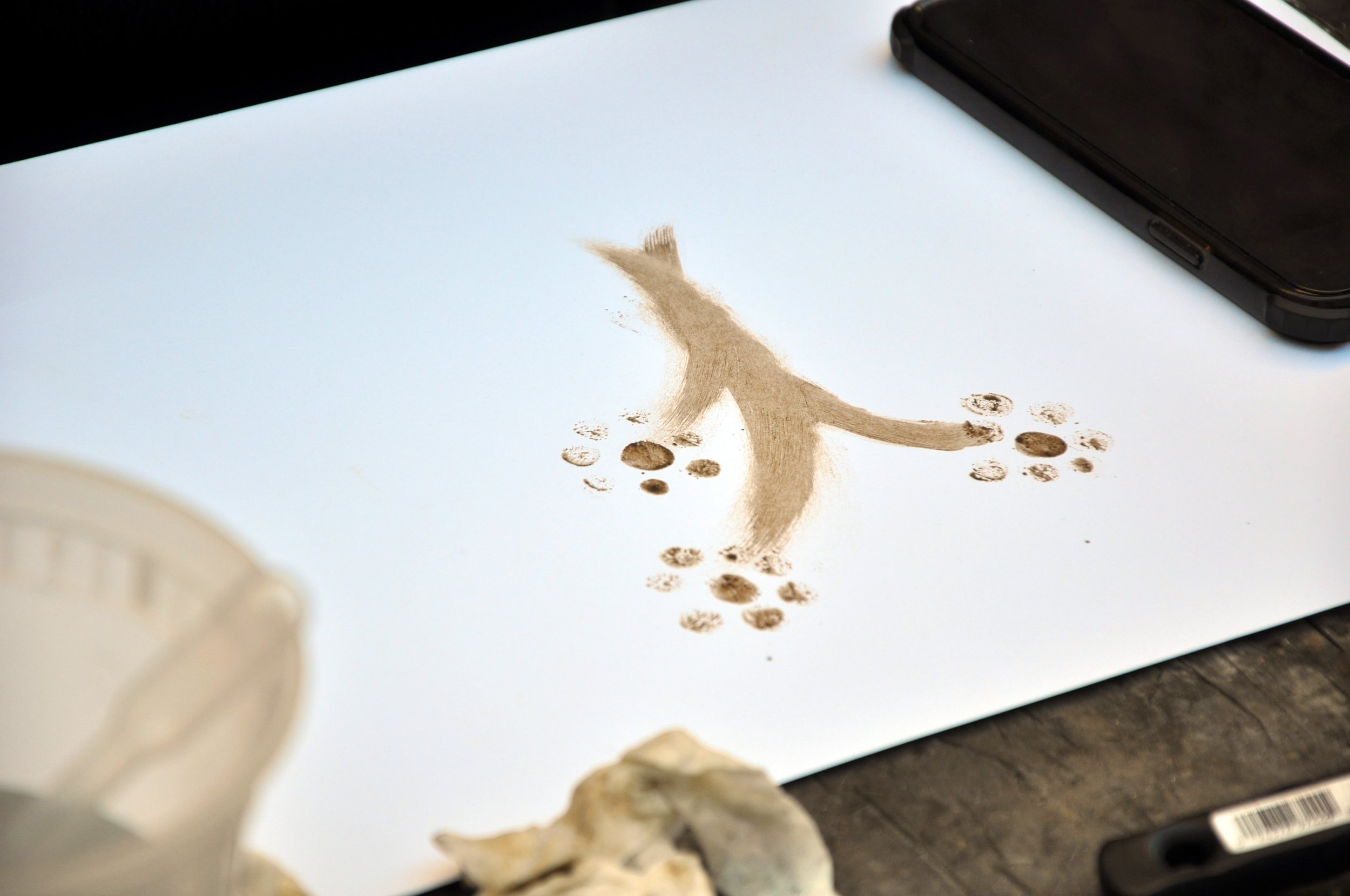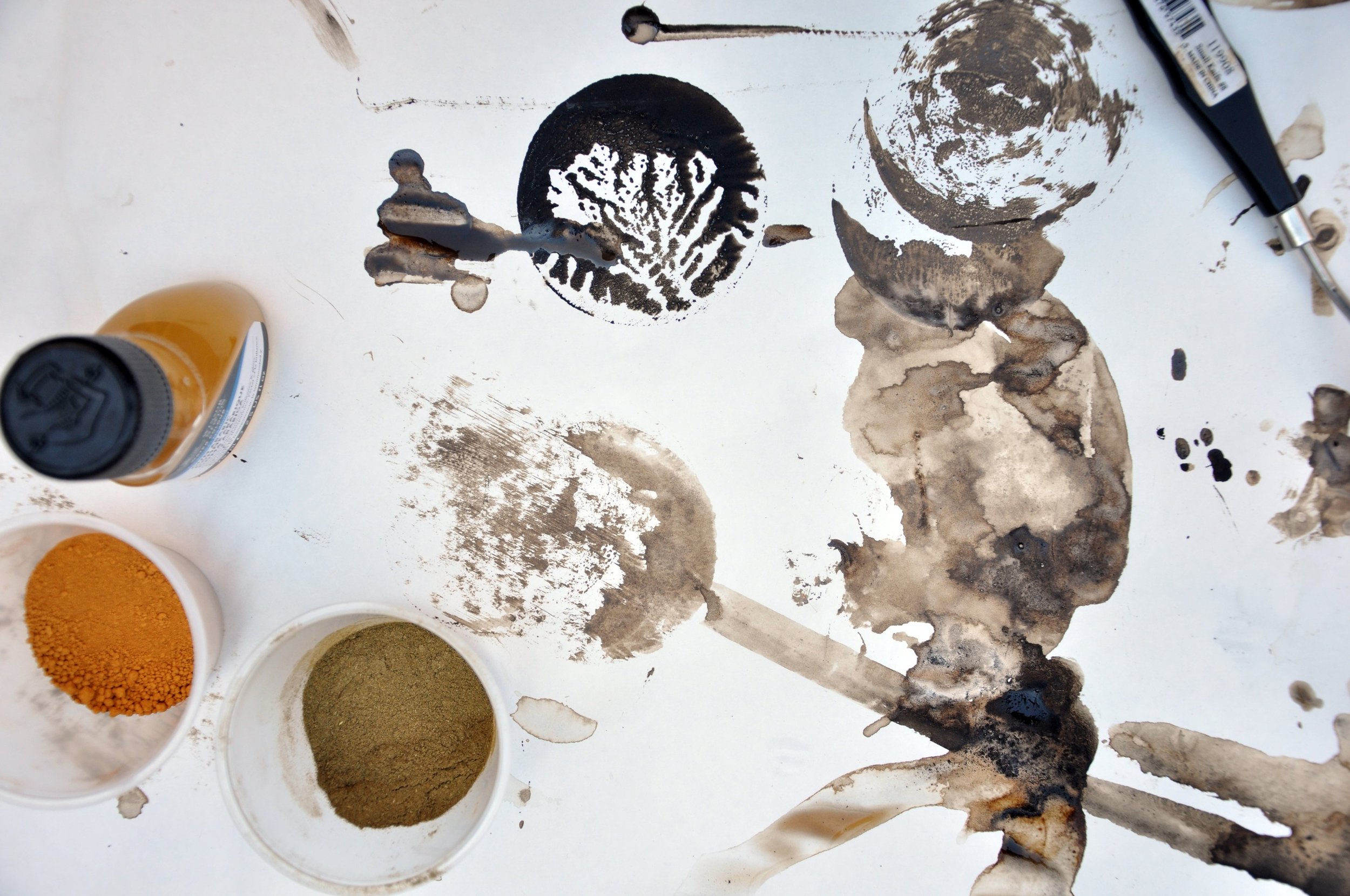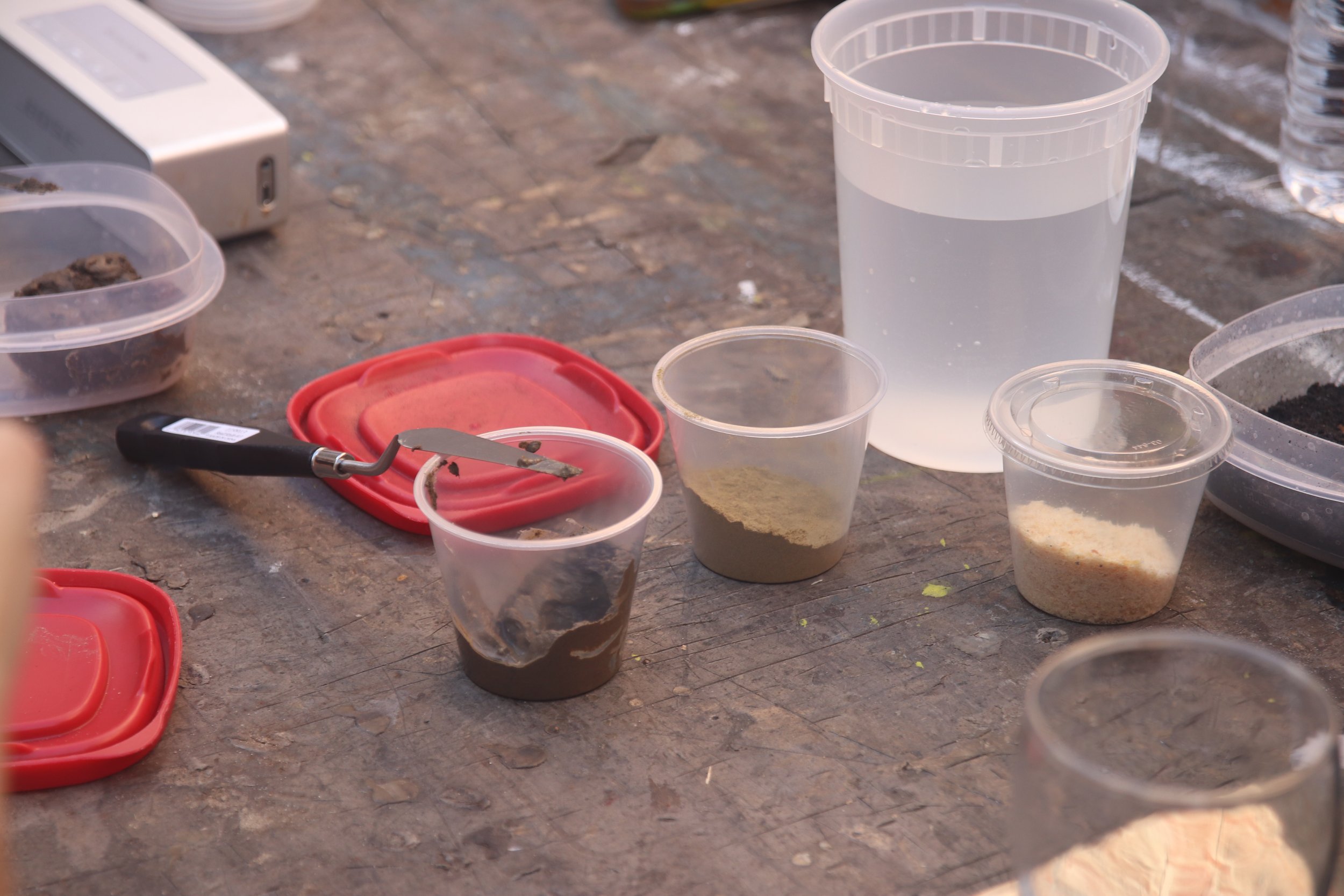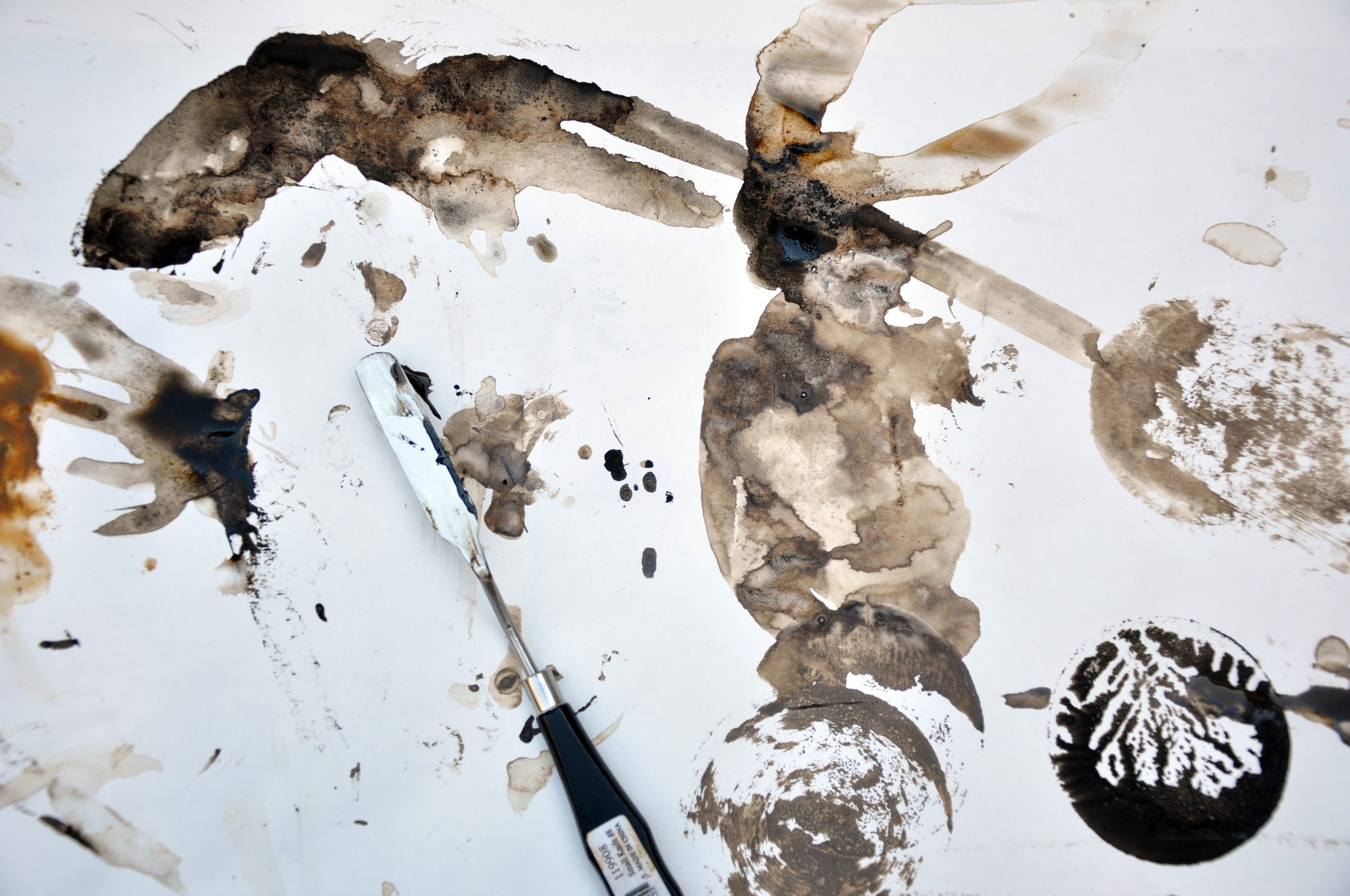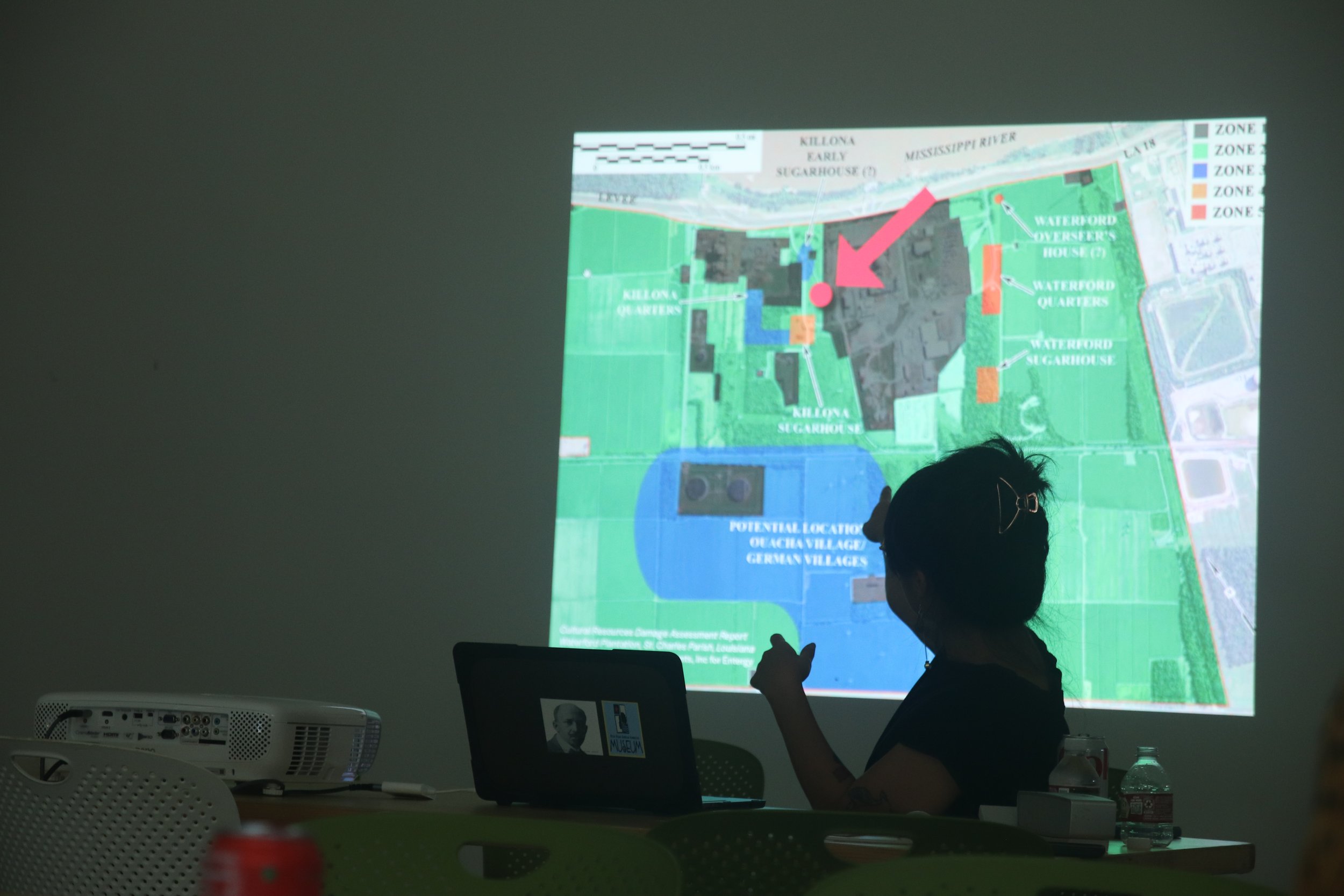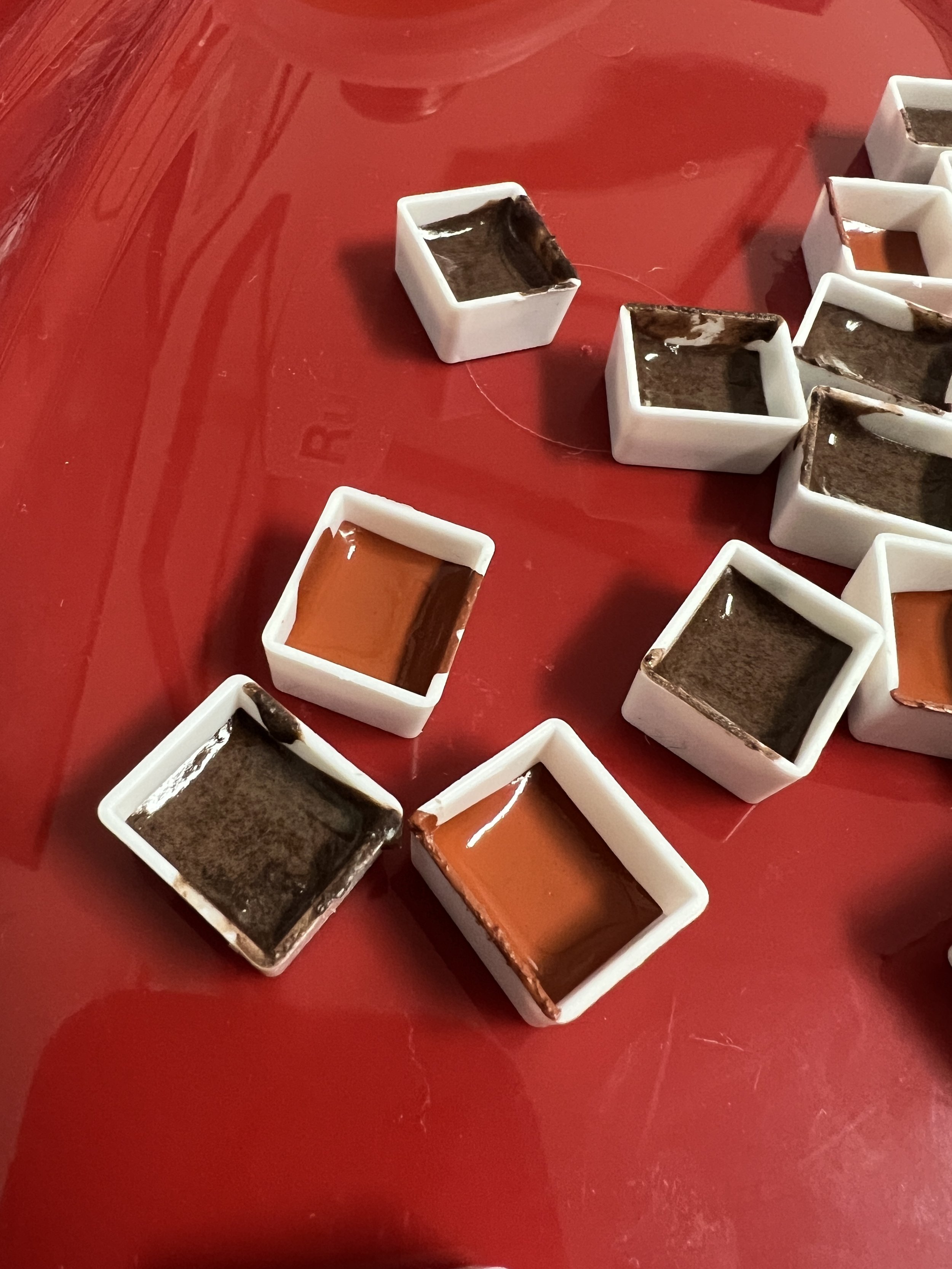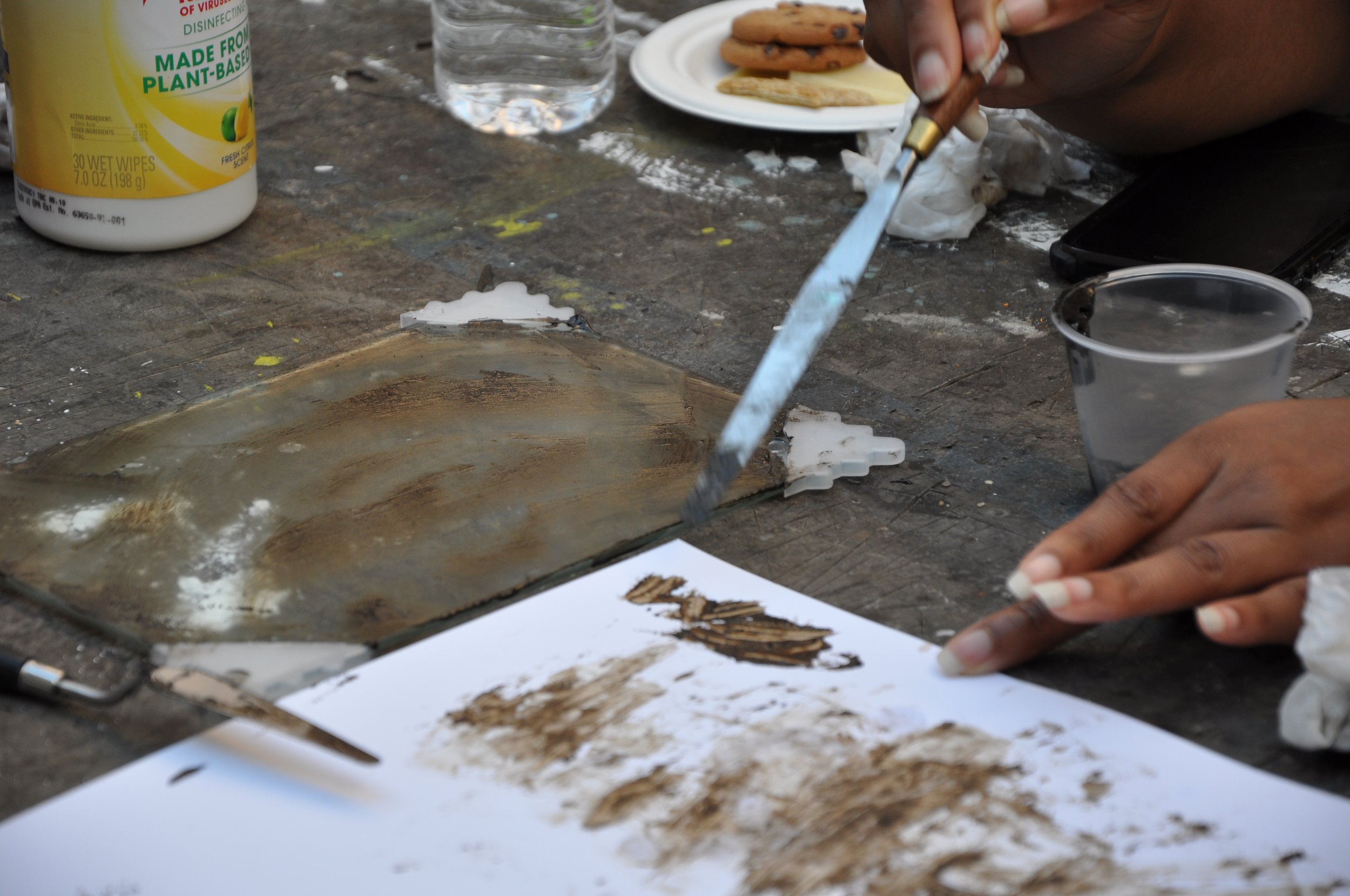Registration is now closed. We are thrilled by the interest in this event and regret that we were not able to take everyone off the waitlist. Please stay tuned for announcements on future workshops.
The Workshop
Guided by History Design Studio Fellow Robin McDowell, Participants will work together to create watercolor pigments from foraged organic materials from research sites in south Louisiana, as well as materials from Harvard’s campus.
The workshop will begin with a short informational talk and demonstration of methods for incorporating archives and ethnography in environmental artmaking. Participants will then learn hands-on techniques for creating paints with soil and other organic matter and take home a small pigment pot created during the workshop.
As participants examine and work with the materials, they will engage in discussion about the materials themselves, as well as the histories of the peoples, lands, and bodies of water where the materials were first encountered.
This event is the second in the Swamp Capitalism Event Series convened by History Design Studio Fellow Robin McDowell.
Limited to 15 participants. Advance registration required.
Artist Statement:
My creative practice draws on years of traveling south Louisiana swamps and backroads, oil towns, salt mines, former sugar plantations, flood control structures, shipping ports, tourist attractions, prisons, and chemical refineries tucked along the banks of the Mississippi and Atchafalaya Rivers. Sites of industry and pleasure blend seamlessly atop remains of enslaved people and displaced towns founded by Black families in the years following Emancipation. Over the course of many years spent following the intertwined histories of oil, salt, and sugar in Louisiana’s sinking wetlands, I came to realize the perverse metabolism of natural resource extraction at the expense of Black lives and labor.
Studies over the course of the 20th century exhibit incredible capacities of soil, air, and water to retain chemical residues (both benign and toxic) and structural damage from environmental duress, such as heat, ice, floods, and industrial pollutants. New scholarship in the life sciences demonstrates that, conceived as a larger system of biomass, these materials metabolize energy in pathways similar to the human transmission and processing of emotion by neurotransmitters and parasympathetic nervous systems. With these studies in mind, my body of creative work offers a provocation: The molecular structures of soil and water collected from former plantation sites are evolving and restructuring themselves due to ecological, economic, racial, and psychological violence and theft enacted upon the environment by European settlers, plantation owners, and corporations. These practices range from soil exhaustion by mono-cropping, erosion from deforestation and engineering projects, and microbiological reconfiguration from the psychic energies of terror, pain, hope, and pleasure. As the pigments crystallize, oxidize, melt, dissipate, and congeal over time, visual and tactile stories emerge through the rendering of new creative and interpretive possibilities from materials themselves.
The Swamp Capitalism Event Series brings together artists, teachers, activists, filmmakers, and academics from New Orleans, Cambridge, and beyond.
Swamp Capitalism: The Roots of Environmental Racism, an interdisciplinary project of History Design Studio Fellow Dr. Robin McDowell, traces racial, ecological, and economic encounters between African descended peoples, petroleum, sugar, and salt in Louisiana swamps on a geologic time scale. The programming brings this research to life through artmaking, documentary film, and intergenerational dialogues.


